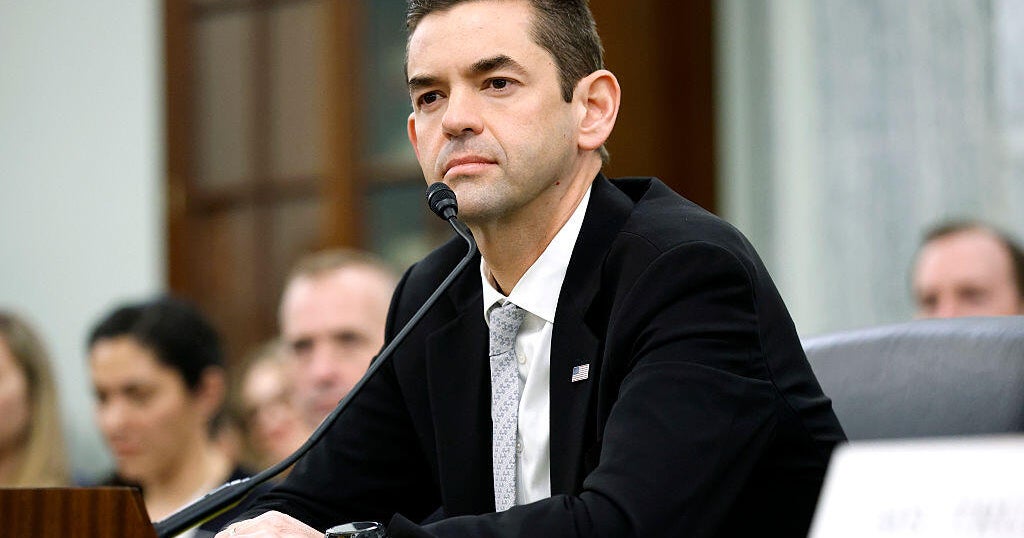The White House has unexpectedly withdrawn the nomination of billionaire entrepreneur Jared Isaacman to lead NASA, just days ahead of a pivotal Senate confirmation vote. This decision comes amid ongoing discussions surrounding the direction and leadership of the agency tasked with advancing America’s ambitions in space exploration. White House spokeswoman Elizabeth Huston stated that a new nominee will soon be announced, emphasizing alignment with President Trump’s “America First” agenda.
| Article Subheadings |
|---|
| 1) Context of the Nomination |
| 2) Reasons Behind Withdrawal |
| 3) Reactions and Implications |
| 4) Isaacman’s Vision for NASA |
| 5) The Future of NASA Leadership |
Context of the Nomination
The nomination of Jared Isaacman to lead NASA was initially met with enthusiasm, particularly due to his extensive background as a private astronaut and his connections to significant figures in the aerospace industry, notably Elon Musk. Chosen by President Trump before taking office, Isaacman was positioned to drive forward ambitious space exploration initiatives, including a proposed mission to Mars.
Isaacman, who made headlines as the commander of the SpaceX Inspiration4 mission, presented a compelling profile of a modern astronaut. With a wealth of experience in piloting advanced aircraft, he was expected to bring innovative insights into NASA’s operations and aspirations. The administration’s choice reflected a broader strategy aimed at fostering private sector involvement in national space programs.
Reasons Behind Withdrawal
Despite the promising start, the White House’s abrupt withdrawal of the nomination has raised eyebrows. Although no official reason was provided, White House spokeswoman Elizabeth Huston asserted that the replacement would need to share alignment with President Trump’s “America First” agenda. This move suggests internal strategic recalibrations within the administration as it seeks a leader who can unequivocally support its goals.
This development has led to speculation regarding political dynamics within the White House and implications for Isaacman. The lack of an explanation for the withdrawal leaves room for conjecture not only about the nominee’s fit but also about broader complications influencing the nomination process.
Reactions and Implications
The reaction to the news of Isaacman’s nomination withdrawal has been marked by a mix of disappointment and concern. Elon Musk, through his X platform, expressed his belief that Isaacman embodies qualities of competence and integrity, reaffirming support for his capabilities amid the uncertainty. This sentiment was echoed among various space enthusiasts and industry experts who viewed Isaackman as a catalyst for growth and innovation at NASA.
The implications of this decision could have far-reaching effects on NASA’s future direction. The agency’s capacity to engage with the private sector has been a recent focal point in its operational strategy. A leadership change may alter existing partnerships and affect scheduled missions and projects that hinge on strong collaboration with private aerospace entities.
Isaacman’s Vision for NASA
In previous statements, Jared Isaacman had expressed a vision for NASA as a platform for unifying efforts towards becoming a spacefaring civilization. After his nomination in December, he stated, “We will inspire children, yours and mine, to look up and dream of what is possible,” reinforcing a narrative focused on exploration and pioneering advancements in space technology.
His advocacy for space exploration emphasized the importance of NASA in inspiring future generations and restoring the nation’s lead in space initiatives. Isaacman’s foresight included utilising technology to ensure the United States retains its competitive edge in space capabilities, aiming to culminate in a return to the Moon and a journey to Mars.
The Future of NASA Leadership
As the White House prepares to announce a new nominee, the search for effective leadership at NASA is critical. The next administrator will not only inherit the existing challenges faced by the agency but will also need to address the expectations surrounding America’s role in global space exploration.
Looking ahead, the future leadership of NASA will likely play a pivotal role in determining how the agency adapts to changing political climates and technological advancements. The new administrator must align with federal strategies while fostering partnerships with private entities, ensuring a comprehensive approach towards achieving ambitious goals in space exploration.
| No. | Key Points |
|---|---|
| 1 | The White House withdrew the nomination of Jared Isaacman just days before a Senate vote. |
| 2 | No specific reason was given for the withdrawal of the nomination. |
| 3 | Isaacman had strong ties to the aerospace industry and was seen as a promising candidate for NASA leadership. |
| 4 | Reactions from industry leaders expressed disappointment at the withdrawal. |
| 5 | The future NASA administrator will need to align with the current administration’s goals. |
Summary
The unexpected withdrawal of Jared Isaacman‘s nomination for NASA administrator highlights the intricate dynamics surrounding leadership roles in pivotal government agencies. This decision not only reflects the White House’s strategic realignments but also raises questions regarding the future trajectory of NASA amidst shifting political priorities. The upcoming nomination will be critical in navigating the challenges of space exploration in the United States.
Frequently Asked Questions
Question: Who is Jared Isaacman?
Jared Isaacman is a billionaire entrepreneur, skilled pilot, and private astronaut, known for commanding the SpaceX Inspiration4 mission, which was the first all-civilian orbital space flight.
Question: What was Isaacman’s vision for NASA?
Isaacman’s vision included inspiring future generations, re-establishing American leadership in space exploration, and ensuring that NASA plays a central role in achieving ambitious goals like a return to the Moon and crewed missions to Mars.
Question: Why is NASA leadership important for space exploration?
Effective leadership at NASA is crucial for ensuring that the agency remains at the forefront of global space exploration, fosters innovation, and maintains strong partnerships with private aerospace companies.
